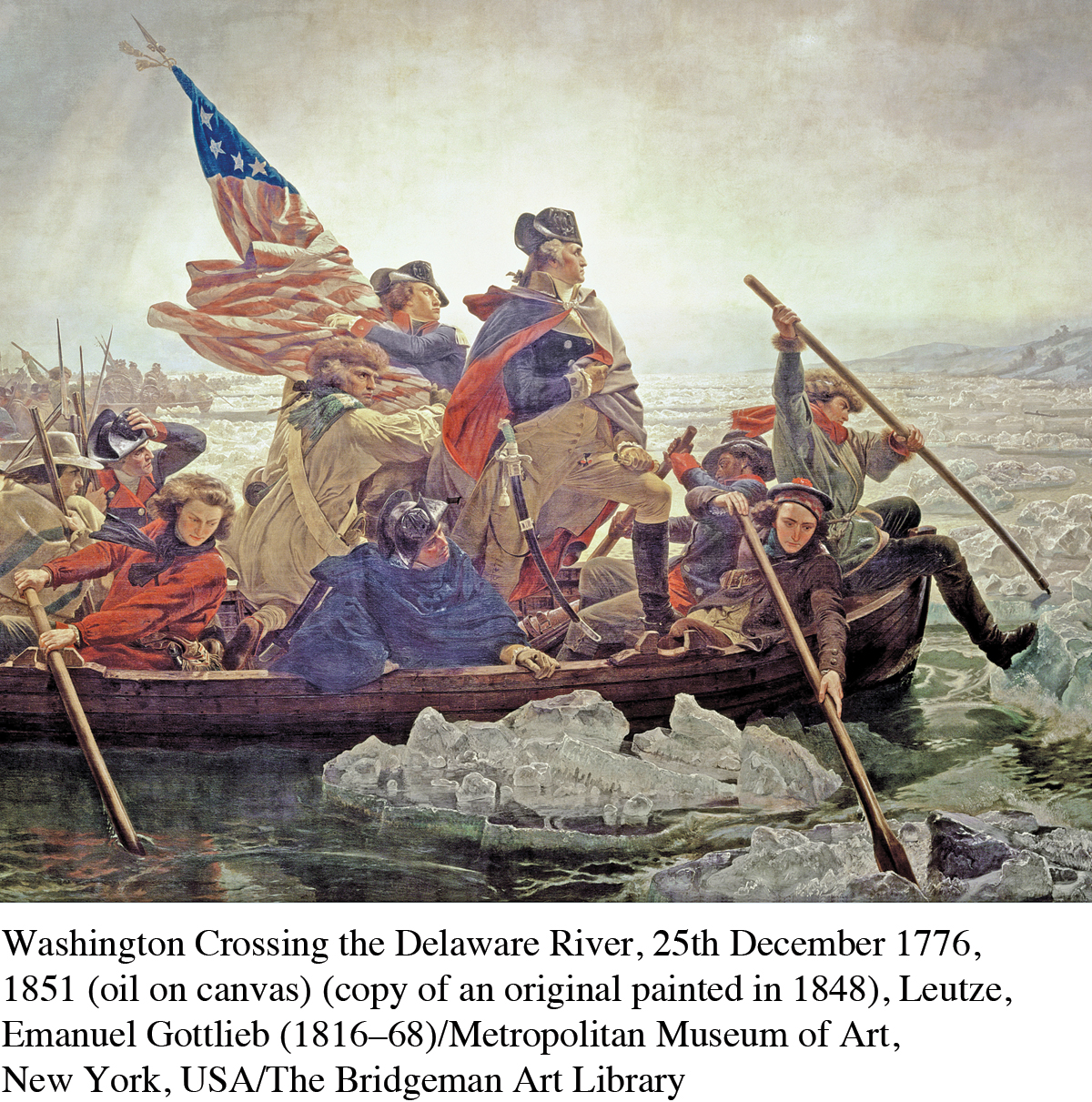Introduction to Chapter 8
188

189
The game is pretty near up,” George Washington wrote his cousin in 1776.1 His army had suffered several devastating defeats, and the British had taken New York City. With only 3,000 of his original 20,000 troops remaining, Washington retreated to the Delaware River. There, his troops hunkered down in the snow, sick and fatigued. Ten miles upstream, on the opposing shore, lay the city of Trenton—and a British garrison filled with Hessians (German mercenaries).
The morning of Christmas Eve, Congressman Benjamin Rush paid Washington a visit, hoping to lift his spirits. During their conversation, Washington furiously scribbled on scraps of paper. Seeing one fall to the floor—and thinking perhaps they were notes to loved ones—Rush picked it up. He was surprised to see only three words: “Victory or Death.” It was Washington’s password to his officers for an assault on Trenton.
Washington’s plan was audacious and unprecedented: he would launch a surprise attack on Christmas Day. The risks were enormous. With so few men left, if the ploy failed, the war would be lost, and with it, the dream of a free and independent “United States.” The odds of success were minimal. Washington’s troops would have to navigate the turbulent, ice-packed river with horses, equipment, and weapons, at night, then hike 10 miles through the snow to attack a heavily fortified encampment filled with highly trained troops.
190
But Washington had a secret motivational weapon. Five days earlier, intellectual and revolutionary Thomas Paine had penned “The American Crisis,” an essay that opened with the following words:
These are the times that try men’s souls. The summer soldier and the sunshine patriot will, in this crisis, shrink from the service of their country; but he that stands it now, deserves the love and thanks of man and woman. Tyranny, like hell, is not easily conquered; yet we have this consolation with us: the harder the conflict, the more glorious the triumph!
Sensing his soldiers’ low morale and realizing the power of the spoken word to inspire, Washington ordered officers along the riverbank to read Paine’s passage out loud to their troops before they embarked. It worked. Uplifted by the impassioned words, the troops braved the crossing without incurring any losses, despite the giant chunks of ice that surged down the river and rammed their boats.
By 4 a.m. the crossing was complete, and the troops began their cold, treacherous journey to Trenton. It took four hours to march the 10 miles. But when they arrived, they immediately attacked—and caught the sleeping Hessians and their British officers unawares. As they stormed the town, Washington’s sleet- and mud-covered troops shouted, “These are the times that try men’s souls!”
The battle ended quickly. The Americans suffered only four casualties, whereas 100 Hessians were killed or wounded, over 900 were taken prisoner, and the garrison and all of its weapons and supplies were confiscated. More importantly, a stunning psychological blow had been landed against the British: the “upstart colonists” could fight—and win—after all. In the months that followed, Washington prevailed in a series of similar clashes, ultimately winning the war itself and ensuring the survival of the fledgling nation.
On Christmas Day 1776, a beleaguered general put his faith in the power of verbal communication to motivate forlorn troops to cross an impassable river and attack an impregnable fortress. Centuries later, millions of people live, learn, and love in a country that exists because of those words.
191
In a life filled with firsts—first kiss, first job, first car—it’s a first we don’t even remember. But it’s celebrated by the people around us, who recognize in that fleeting moment the dawning of a life filled with language. Our first word drops from our mouths as the simplest of monosyllables: “cup,” “dog,” “ball.” But once the sound has left our lips, the path has been irrevocably forged. By age 6, we learn more than 15 new words a day, and our vocabularies have grown to anywhere between 8,000 and 14,000 words (Cole & Cole, 1989). As we master our native tongues, we discover the power of verbal communication. By exchanging words with others through social media, via text message, over the phone, and face-to-face, we share ideas, influence others, and make relationship choices. We also learn that language can serve both constructive and destructive ends. Used constructively, verbal communication opens doorways to shared understanding, intimacy, and enduring relationships. Used destructively, verbal communication can mislead and injure others and damage our relationships.
In this chapter, we examine the nature and role of verbal communication in our lives. You’ll learn:
The defining characteristics of language
The important functions that verbal communication serves in our interpersonal encounters and relationships
Principles you can apply to use verbal communication more cooperatively
The behaviors and actions that undermine cooperative verbal communication—and what can be done about them